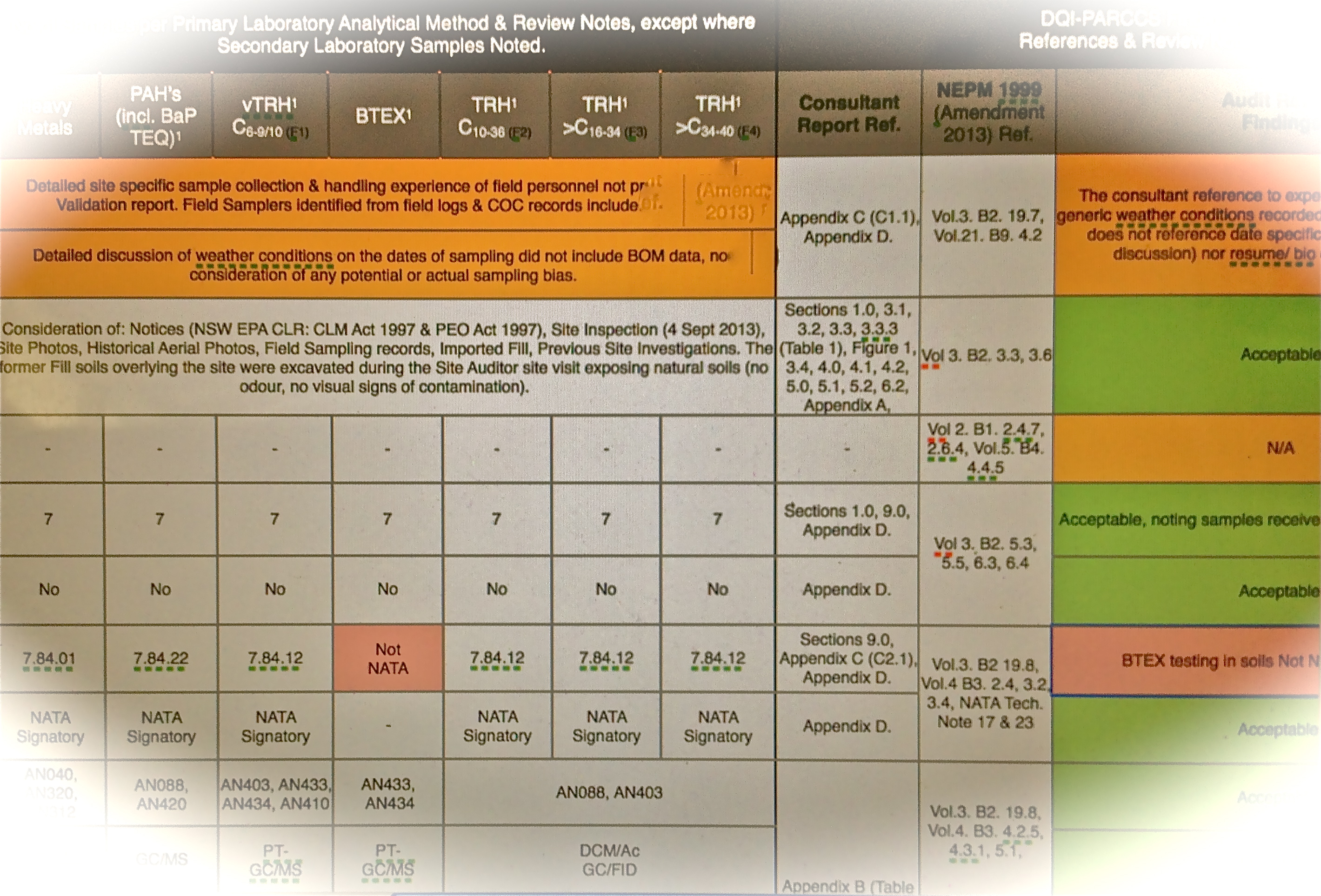
Welcome
David Burns is an environmental chemist with expertise in laboratory data audits, green chemistry, and industrial ecology. David is available to help business & professionals integrate sustainable supply chains and energy efficiency into service offerings. The following blog topics are intended to invoke awareness and/ or action in Going-Green. You are also invited to create a Free Whoisgreen business profile using the link above. David Burns is a NSC member of the Rocky Mountain Institute.

Sustain450 provides technical support to EPA Accredited Site Auditors in NSW, VIC and SA to review environmental consultant DQO & DQI (PARCCS) practices.
The new NEPM 1999 (Amendment 2013) Guidelines emphasize Data Quality Objectives (DQO) referenced from USEPA QA/G-4, and Data Quality Indicators (DQI) which consider field sampling and laboratory testing PARCCS elements: Precision, Accuracy, Representativeness, Comparability, Completeness, Sensitivity.
The DQO & DQI (PARCCS) procedures increase confidence in using the primary laboratory & physical data set prior to input into the Conceptual Site Model (CSM).
In addition, the DQO & DQI (PARCCS) procedures identify data gaps, and provide the Accredited Site Auditor on the level of DQI decision risks in using the primary data, plus provides a traceable record of how the DQI (PARCCS) review findings were reached.
Sustain450 provides a Data Quality Matrix table that identifies all DQI parameters and compliance using a visual format designed to provide the Accredited Site Auditor with an immediate indication of compliance, from acceptable through to minor and major deviations from the NEPM 1999 (Amendment 2013) Guideline requirements.
Sustain450 has presented to the NSW EPA Site Auditors meeting during October 2013.
Sustain450 review may include a specific consultant investigation phase, or alternatively the entire field sampling and laboratory testing spanning the ESA, Detailed ESA, Supplementary Investigations, Ground water Investigations, Soil Vapour Risk Assessments, and Validation following remeidation. The Sustain450 DQI review timeframe is 6hrs to several days dependant upon the scope of works.
For more details contact David Burns at david.burns@sustain450.com.au









